Who can issue a Certificate of Compliance for solar systems
Is your solar system legally installed?

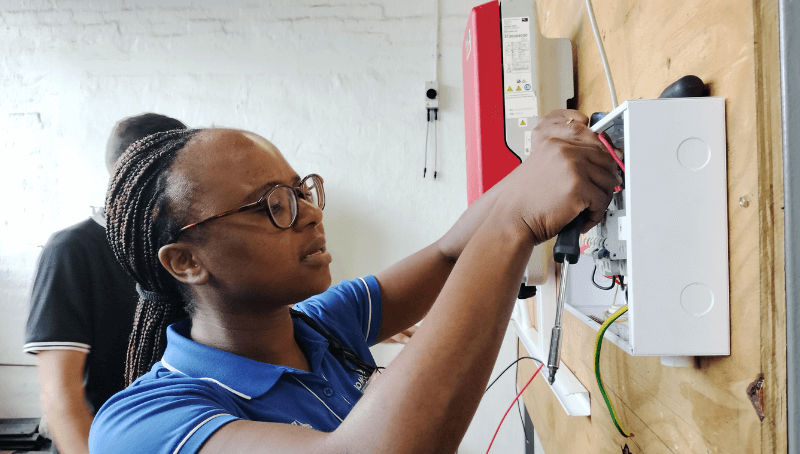
Only a registered Installation Electrician (IE) or Master Installation Electrician (MIE) has the legal authority to issue a Certificate of Compliance for a PV System in South Africa.
If you work in solar or you’re a homeowner adding PV one question comes up fast: who is actually allowed to issue the Electrical Certificate of Compliance (CoC) for a solar system?
What is a CoC, and why does it matter?
A CoC is the legal document that proves an electrical installation meets South Africa’s safety standards. For solar, it’s issued with a test report that records the inspection and tests carried out on site. Any addition or alteration to an electrical installation, like adding a PV system, triggers the need for a supplementary CoC, and you cannot issue that supplement if the property doesn’t already have a valid CoC. The CoC is crucial for day-to-day legal compliance and often for insurance and bond requirements as well.
In this article, we’ll spell out exactly who may issue the CoC for solar systems, and why proper, up-to-date training is the difference between a smooth sign-off and a costly do-over.
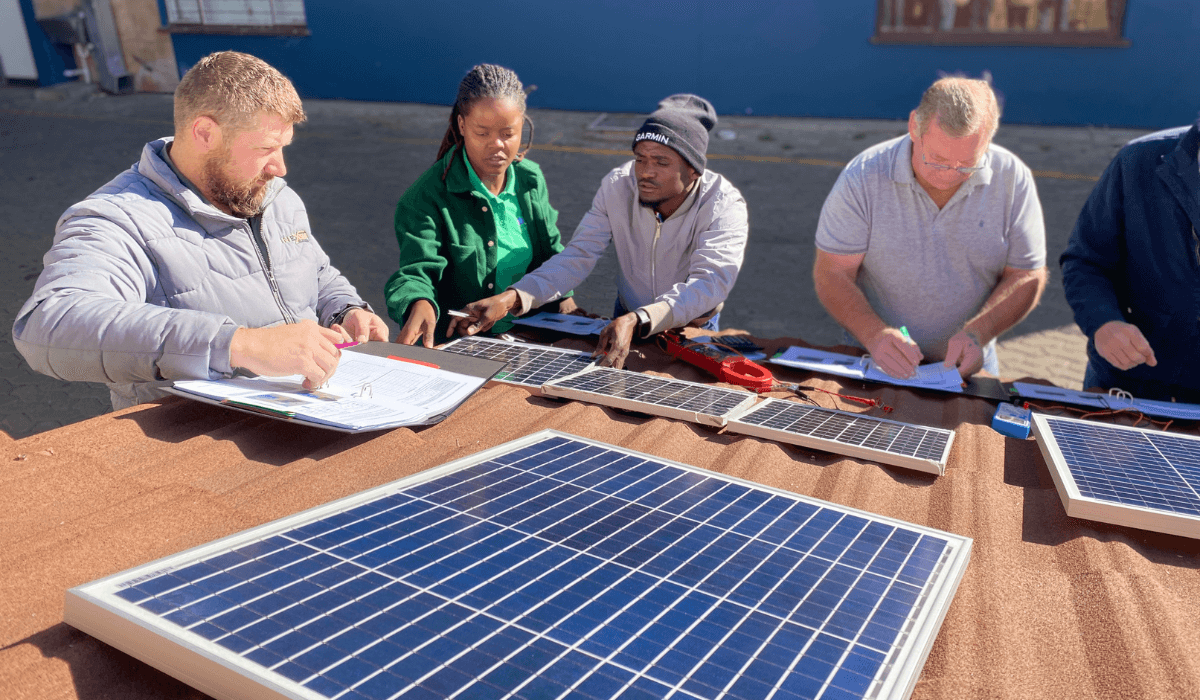
Legal Framework & Definitions
The duty to keep electrical installations safe sits in the Electrical Installation Regulations, 2009 under the Occupational Health and Safety Act 85 of 1993. Practically, that means solar becomes part of the home’s electrical installation and must follow the same rules: use a properly registered contractor and ensure a CoC (plus any supplementary CoC after changes) is issued and kept on file.
Electrician Classifications in South Africa
South Africa recognizes three registered categories of electricians, each with distinct scopes of practice:
| Electrician Type | Scope & Limitations |
|---|---|
| ETSP (Electrical Tester for Single Phase) | Can verify and certify simple single-phase installations. May install solar systems but only under the general control of an IE or MIE. Can issue a CoC only for single-phase solar installations after passing a trade test and completing prescribed unit standard training. ETSPs are not accredited to test or inspect DC circuits, as this falls outside their single-phase scope of work. |
| IE (Installation Electrician) | Fully qualified to install, inspect, and certify both single-phase and three-phase electrical systems. May install solar systems and issue CoCs for them. Also supervises ETSP work to ensure compliance with electrical and SANS standards. |
| MIE (Master Installation Electrician) | The highest-level qualification. Authorized to install and certify any standard or specialised electrical installation, including solar systems. Validates complex installations and issues CoCs. |
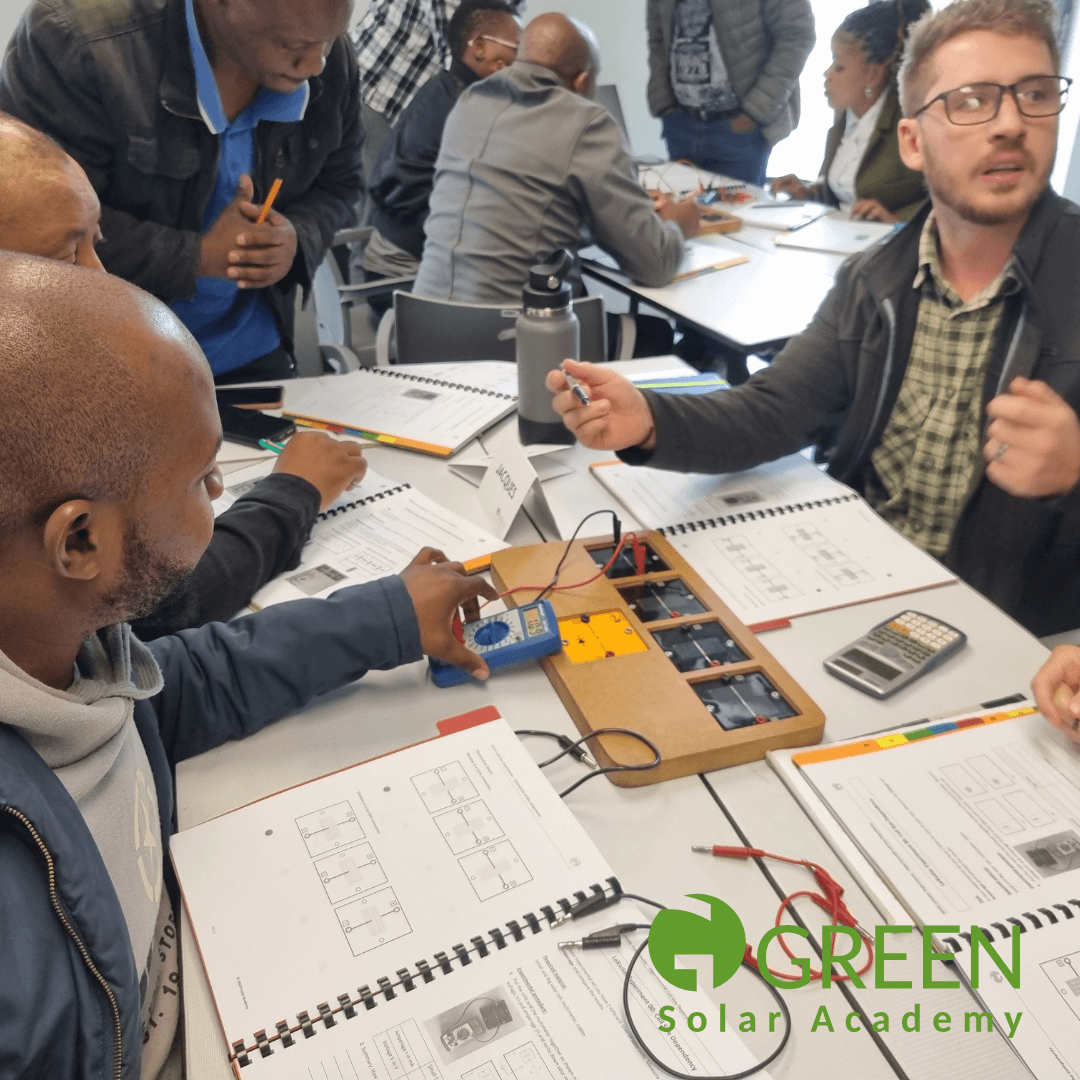
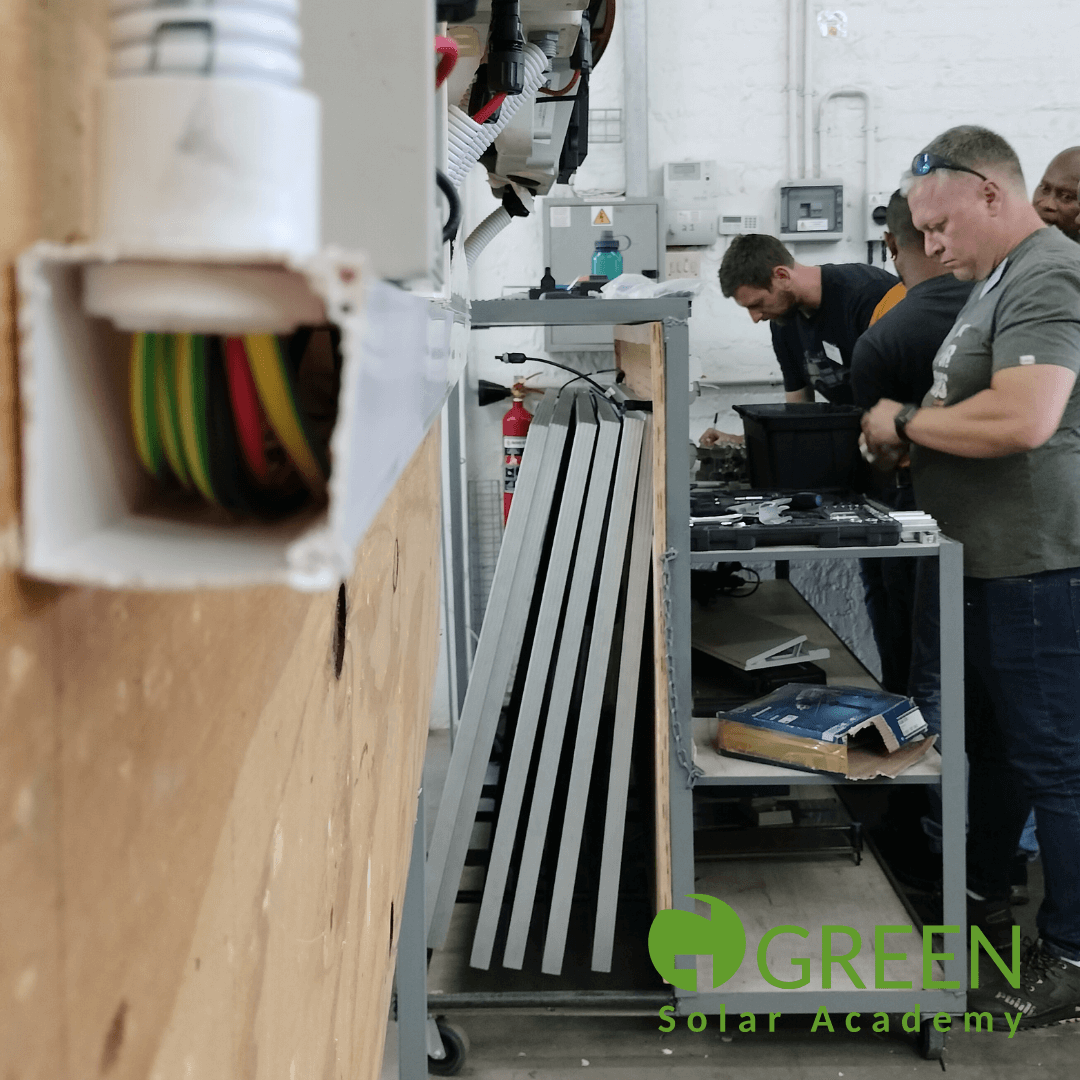
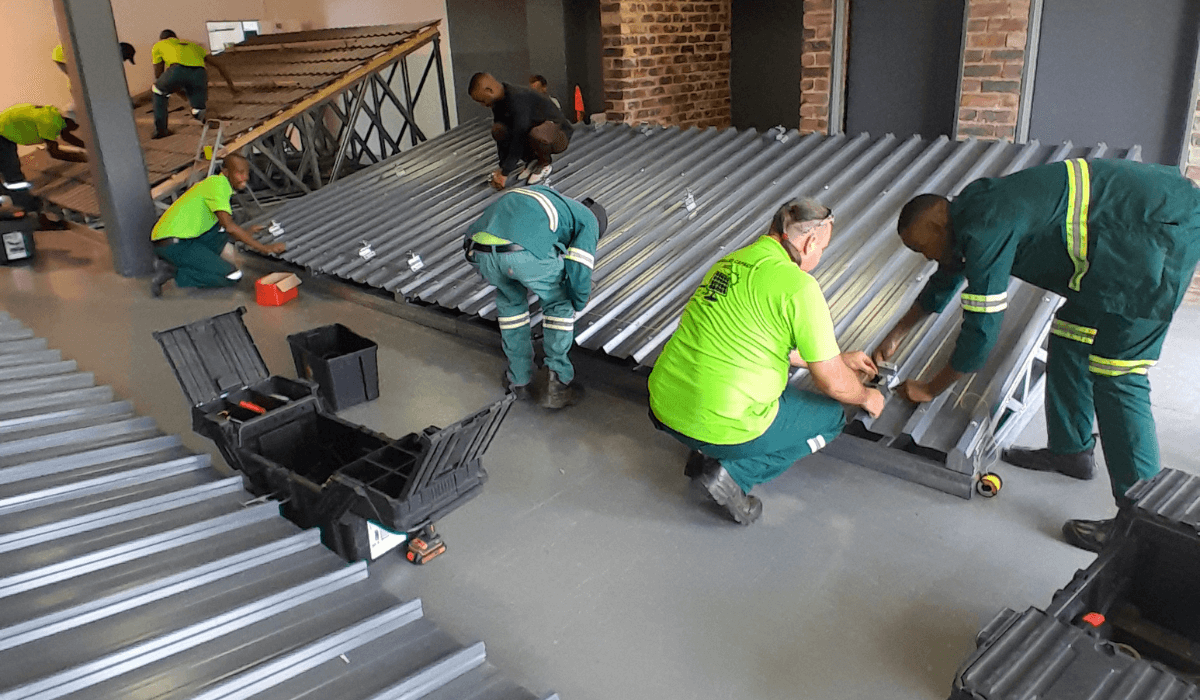
Legal risks of non-compliance
Cutting corners on who installs your solar system—or who issues the CoC—can have serious consequences. If the work is done by an unauthorised person or the CoC is issued outside the electrician’s registered scope, the installation is illegal under the Electrical Installation Regulations, 2009. This can lead to:
- Voided insurance claims if the system is damaged, causes damage, or is linked to a fire or injury.
- Bond complications, as many banks require a valid CoC before approving finance or finalising property transfers.
- Resale obstacles, since the absence of a valid CoC can stall or cancel a property sale.
It’s also important to understand that a CoC has a two-year validity period for transfer purposes. If any changes or additions – such as installing a solar PV system – are made within that time, a supplementary CoC must be issued. This supplementary certificate confirms that the new work complies with safety standards and integrates correctly with the existing installation. Failing to obtain it leaves the system non-compliant and can trigger all the risks above.
A CoC without the correct registration and scope is not just a regulatory breach—it can invalidate insurance claims, create liability for the installer, and leave the property owner with an unsafe or non-compliant system.
PV GreenCard as a valuable addition
Legally, a solar PV system can only be installed and certified by a trained, officially registered electrician who holds a wireman’s licence and the necessary unit standards for their scope of work. This is not just paperwork; it proves the person understands and can apply the Electrical Installation Regulations, SANS standards, and the correct testing and inspection procedures. Without this, the installation is not compliant, no matter how neatly it’s done.
The PV GreenCard is a great voluntary addition to any solar installation. While not currently mandatory, it is an industry-developed quality assurance programme that provides system owners with confidence that their system has been installed to recognised standards. The PV GreenCard takes the form of a detailed checklist and installation report, documenting the components, design parameters, and compliance of your system.
It’s important to note that the PV GreenCard itself is not a licence. It only carries legal weight if the installation is signed off by a registered electrician authorised to issue a CoC. On its own, the PV GreenCard does not replace the CoC—but when used together, the two documents provide both the legal proof and the quality assurance that your system is safe, compliant, and built to deliver long-term performance.
Certified solar training, such as courses aligned with the PV GreenCard or recognised by professional bodies, ensures electricians are familiar with:
- SANS standards relevant to PV and electrical installations.
- Regulatory requirements under the OHS Act and Electrical Installation Regulations.
- Test protocols for verifying system safety and performance.
- Inspection procedures to ensure every element of the installation is compliant before sign-off.
This combination of formal registration, legally recognised qualifications, and PV-specific training is what keeps installations safe, insurable, and future-proof.
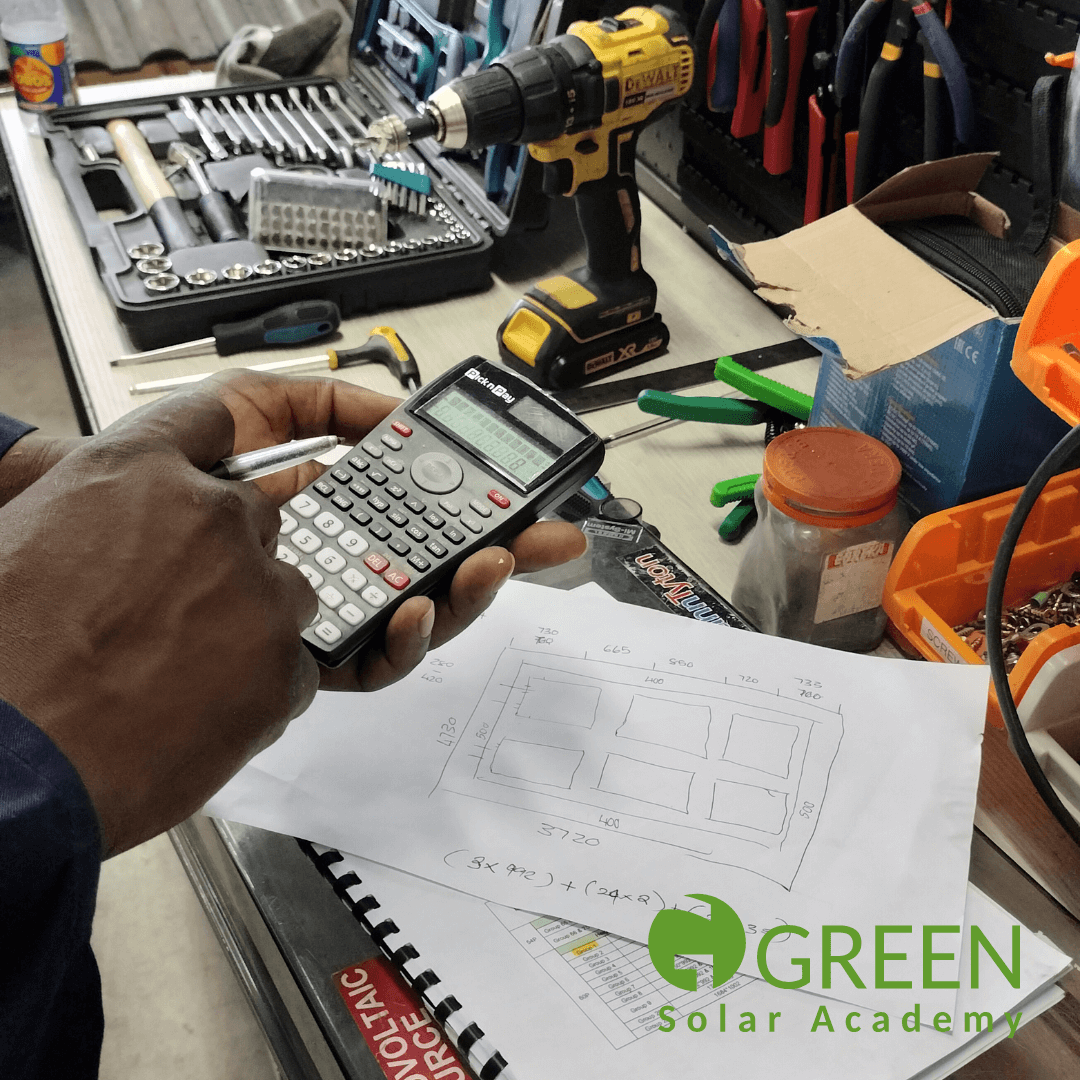
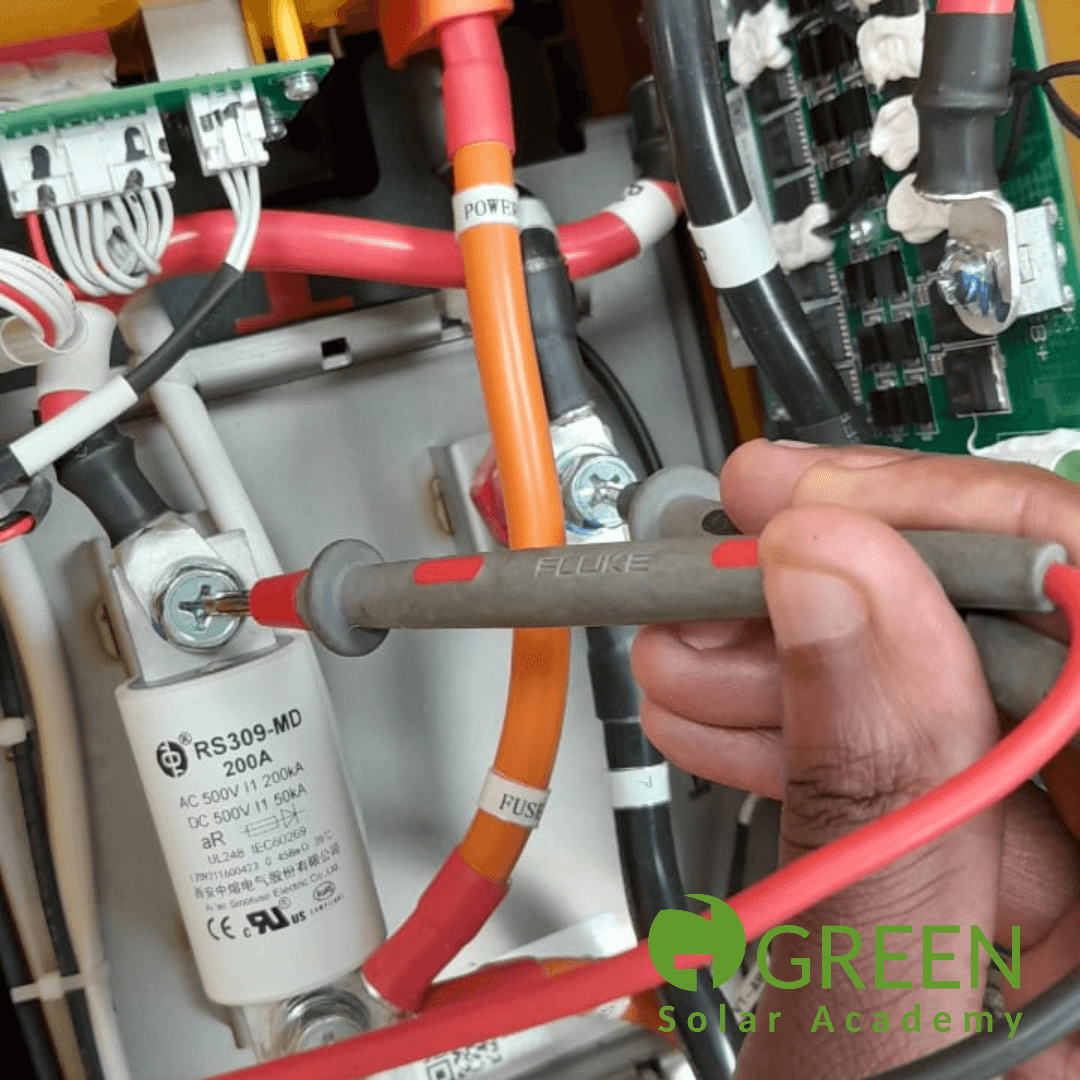
Step by Step: From training to CoC Issuance
The road to issuing a Certificate of Compliance for a solar PV system begins long before the panels are mounted. First, an aspiring electrician must complete their formal trade training, pass the required trade test, and obtain the wireman’s licence that allows them to register with the Department of Employment and Labour as an Installation Electrician (IE) or Master Installation Electrician (MIE). This registration is the legal key—without it, no electrician may certify an installation.
Once qualified, the electrician designs and installs the PV system in accordance with SANS standards, municipal requirements, and the Electrical Installation Regulations, ensuring every detail from protection devices and earthing, to labelling and cable routing is compliant. The system is then subjected to a full round of inspections and tests, with results recorded in the official test report. Only after confirming compliance in every respect can the registered IE or MIE sign the report and issue the CoC, creating the formal record that the installation is safe and legal.
This is where professional solar training, like GREEN’s Compliance for PV Systems or PV Mounter courses, adds real value. While these short courses don’t replace the years of training needed to qualify as an electrician, they bridge the gap between general electrical skills and the specialised knowledge needed for solar PV, covering the regulations, standards, and best practices that ensure a system not only works, but passes inspection the first time.
While they cannot issue CoCs, properly trained technicians, engineers, technologists, and others play an important role in the PV system implementation.
Not a registered electrician – can you still play a role?
We spoke to our lead trainer Marius Geldenhuys, who runs his own successful solar installation business. His answer, “Absolutely, yes!”
“While the rules around the issuing of a CoC and installation of PV systems under the control and supervision of an electrical contractor may be clear, it does not mean that there is not a role for other skills or that only registered electricians can play a role in the design and construction of a PV system,” he explains.

A well-designed PV system often requires a multitude of skills:
- Data analysis skills: Proper needs analysis and load-profiling to ensure the system meets the client’s specific requirements
- Energy management skills: Load optimisation by using energy saving devices, load shifting etc. can lead to much more cost-effective and efficient systems
- System design skills: Proper understanding and analysis of PV, site specific climate conditions and client needs
- Structural analysis: Ensuring the roof structure can handle additional weight and wind/snow loads
- Financial analysis and system modelling skills: Often a requirement for commercial systems to build a business case using sophisticated software
- System integration skills: Smart systems require skills to integrate PV systems with home automation, EV chargers, load shedding schedules etc.
“While electricians specialise in electrical safety and proper testing of systems, properly trained technicians, engineers, technologists, and others can play an important role in the PV system implementation,” says Marius. “This is where specialised PV training courses like those offered by GREEN can play an important role to upskill staff to ensure system success.”
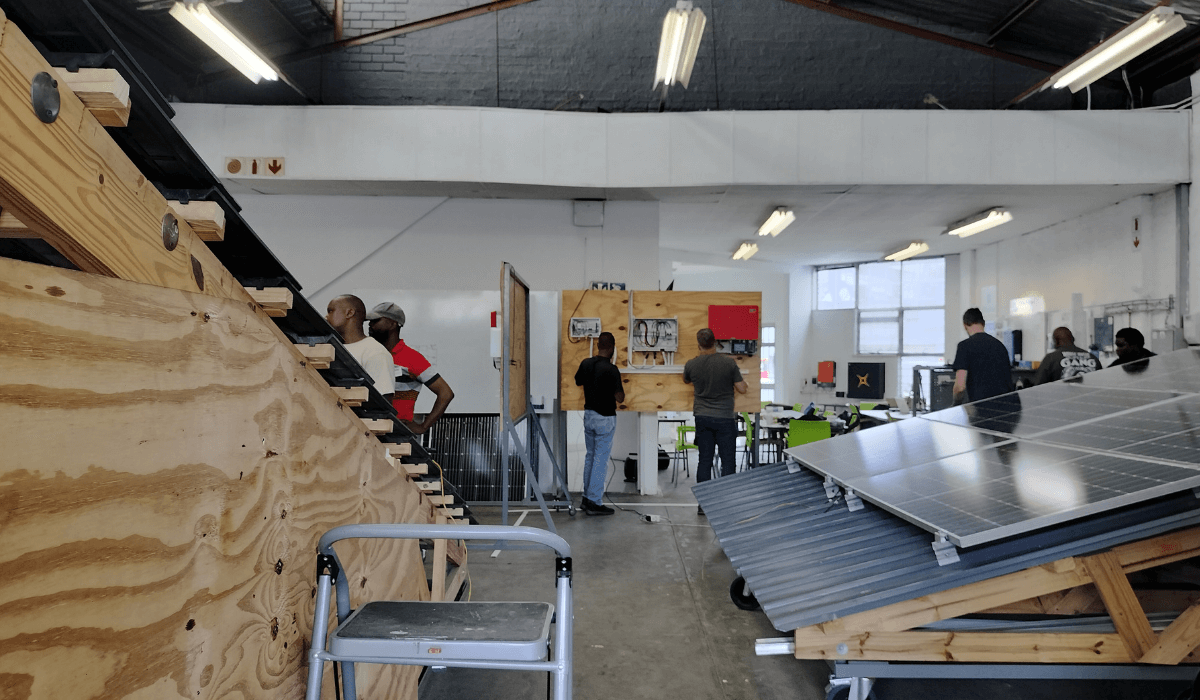
Summing it up:
When it comes to certifying a solar PV installation in South Africa, the rules are clear: only a registered Installation Electrician (IE) or Master Installation Electrician (MIE) has the legal authority to issue a Certificate of Compliance. Electrical Testers for Single Phase (ETSPs) can contribute under supervision and, with specific qualifications, certify only single-phase AC systems, but their scope is limited.
In every case, proper training is the foundation. Formal electrician training and registration give the legal right to issue a CoC, while specialised solar courses build the PV-specific knowledge to design, install, and test systems to the highest standard.
Choose the right training now
Equip yourself and your team with the right skills through PV Mounter, SuperSolarSchool, and Compliance for PV Systems so that installations are done right, and your systems can be signed off with confidence:





